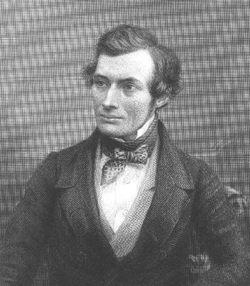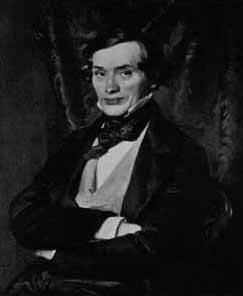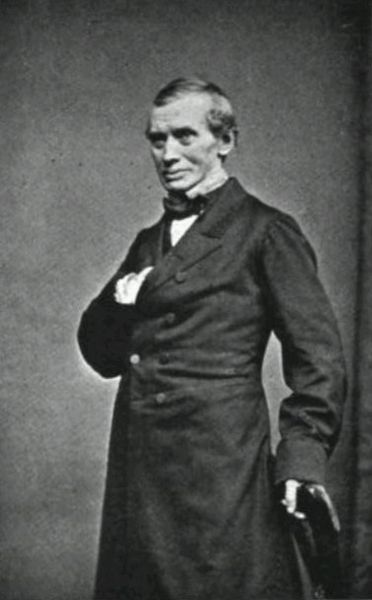<Back to Index>
- Chemist Thomas Graham, 1805
- Composer Christian Ludwig Schuncke, 1810
- Prime Minister of Denmark Anders Sandøe Ørsted, 1778
PAGE SPONSOR



Thomas Graham FRS (21 December 1805 – 16 September 1869) was a nineteenth century Scottish chemist who is best remembered today for his pioneering work in dialysis and the diffusion of gases.
Graham was born in Glasgow, Scotland. Graham's father was a successful textile manufacturer, and wanted his son to enter into the Church of Scotland. Instead, defying his father's wishes, Graham became a student at the University of Glasgow in 1819. There he developed a strong interest in chemistry, and left the University after receiving his M.A. in 1826. He later became a professor of chemistry at numerous colleges, including the Royal College of Science and Technology and the University of London.
Graham also founded the Chemical Society of London in 1841. In 1866, he was elected a foreign member of the Royal Swedish Academy of Sciences.
His final position was as the Master of the Mint, where he stayed for 15 years until his death. He was the last person to hold that position. Thomas Graham is best known for two things: